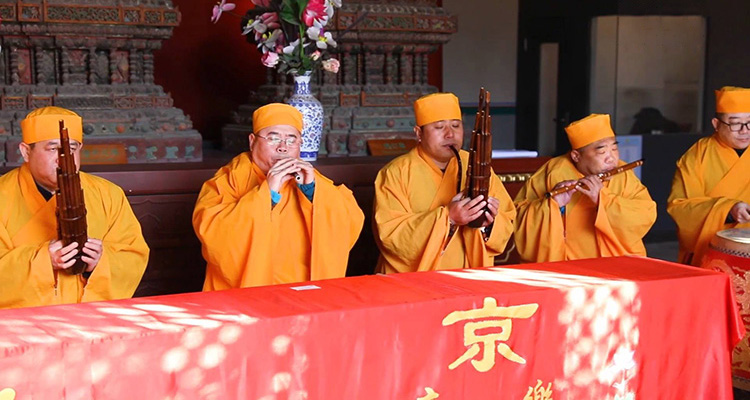Zhihua Temple Jing Music Beijing: 500-Year-Old Classical Chinese Music Experience
Hidden in the bustling Lumicang Hutong in Beijing lies an ancient temple — Zhihua Temple, home to a one-of-a-kind musical treasure known as Zhihua Temple Jing Music. Unlike a grand symphony or a rhythmic pop song, this ancient melody drifts gently from the depths of the Ming Dynasty’s imperial court. Often called “a living fossil of Chinese music”, it offers a mesmerizing time capsule of sound that transports you to another era.
1. What Is It? A Serene Journey Through Sound
Hearing Zhihua Temple Jing Music for the first time can be an unforgettable experience. Its sound is ethereal, distant, yet solemn, capable of calming even the most restless mind.
Think of it as “Ancient Chinese Imperial Meditation Music.”
It features traditional instruments such as the guan (bamboo pipe), sheng, flute, and yunluo (gongs). The music doesn’t tell a story in the Western sense — instead, it paints a poetic landscape, like an ancient ink painting brought to life through sound. Each note seems to carry you back in time, evoking the peace and mystery of temples and palaces from centuries ago.

2. Its Story: From Imperial Palaces to a Hidden Temple
The origin of this ancient art form is a legend in itself.
It began more than 500 years ago during the Ming Dynasty, when it was performed exclusively in the royal court for emperors and nobles. Later, a trusted eunuch who oversaw the construction of Zhihua Temple brought this music from the palace to the temple. There, monks passed it down from generation to generation through oral tradition, keeping it alive and pure.
Because of this master-apprentice oral transmission, Zhihua Temple Jing Music has remained almost unchanged since the Ming Dynasty. What we hear today is likely the same sound that once echoed through imperial halls centuries ago. It is not only beautiful music but also a living piece of history, carrying immense cultural value.

3. How Is It Performed? The Ancient Art of Oral Transmission
The inheritance and performance of Jing Music are considered sacred practices.
- Instruments and Notation: The ensemble consists mainly of traditional Chinese wind and percussion instruments, with the guan as the lead instrument — its tone deep, resonant, and emotional. Remarkably, the musicians still use the ancient gongche notation, a traditional Chinese system for recording music.
- Learning Process: There are no shortcuts to mastering Jing Music. It is passed down line by line, sound by sound, from teacher to student, through repetition and memory. This meticulous process ensures the music remains authentic. During performances, the musicians play with solemn expressions and perfect coordination, turning each session into a sacred artistic ritual.

4. How to Appreciate It: Calm Your Mind and Listen
To appreciate Jing Music, you don’t need musical training — just an open mind and a quiet heart.
- Tips for Listening:
- Close your eyes — Focus on the melody and feel the vibration of sound in the air.
- Feel the atmosphere — Imagine yourself in an ancient temple, surrounded by silence and incense.
- Notice the details — Observe the musicians’ expressions and gestures as they merge with their instruments and the music itself.

5. Where to Experience It: Step Into Zhihua Temple
The best way to truly experience Zhihua Temple Jing Music is to hear it in person at the temple itself.
- Location: Beijing Art and Culture Exchange Museum (Zhihua Temple) — a nationally protected heritage site and the only place where Jing Music is still performed.
- Performance Schedule: Daily performances are usually held twice a day (morning and afternoon). For exact times, it’s best to check the official website or call in advance.
- Learning Opportunities: For enthusiasts, Zhihua Temple and related cultural institutions occasionally host public lectures and workshops on the history and performance of Jing Music.
Find a peaceful afternoon to sit quietly in Zhihua Temple. Let the tranquil air and the ancient melody — preserved through five centuries — bring you a rare and timeless connection with history itself.


